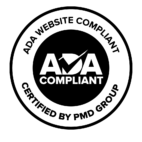
The new year is a great time to set personal financial goals for yourself. You may be looking to set financial resolutions such as saving more, budgeting better, planning for your retirement, paying down debt, or ditching bad spending habits. While each of these resolutions are crucial to your overall financial health, another big aspect is to maintain or improve your credit score. Here are some steps to take this year, this month, or even this week to increase your credit score.
Review Your Credit Mix
Much like a recipe that requires different ingredients, a credit score is determined by multiple factors – with one of them being a credit mix. A credit mix refers to the various types of accounts that make up your credit report, which factors in for 10% of your overall FICO score. Different types of credit that might be part of your credit mix include revolving installment loans, such as credit cards, auto loans, student loans, and mortgages. Having a variety of credit types helps your credit mix as it establishes a more comprehensive profile of your payment history, trustworthiness, and ability to manage different types of credit. However, you should avoid applying for loans or credit cards that you don’t need simply to create a more versatile credit mix. Opening accounts too often could be detrimental to your overall score.
Pay Bills on Time and In Full
Your payment history is the most influential element in the making of a credit score. In fact, for amounts owed on loans and credit cards, a whopping 35% accounts for your overall score. Your payment history shows whether you make payments on time, how often you miss payments, how many days past the due date that you pay bills, and how recently payments have been missed. Your payment habits and trends are revealed in a single credit analysis. Because of this, it’s imperative to pay bills on time and in full.
Lower Your Credit Utilization Ratio
Another key ingredient to the making of a good score includes the balancing of your credit utilization ratio. Your used vs. available credit makes up for 30% of your score. Sometimes referred to as amounts owed, or your credit usage, this factor is weighted heavily when determining credit scores. It’s determined by comparing the current balances with the credit limits on your revolving accounts, especially credit cards. To calculate your credit utilization ratio, add up all the balances on all your credit card accounts, divide that number by the sum of all your credit card limits, and multiply by 100 to get a percentage. The percentage is your utilization ratio and it’s advised to keep this number lower. A good rule of thumb is to keep your credit utilization ratio under 30%, however those with the best credit scores tend to use under 10% of their available credit.
Keep Old Accounts Open
The length of your credit history encompasses 15% of your overall score. If you have a long history of making timely payments, you will have a higher score. Oftentimes, credit scoring models will review the average age of your credit when factoring in credit history. Keeping old accounts open and active will prove beneficial since history is already established.
Don’t Apply for New Accounts Too Often
Recent credit activity is another small piece of the credit score pie, accounting for 10% of your score. Opening too many accounts too close to each other can signify financial trouble or distress which may lower your overall score. Avoid applying for different lines of credit within a certain time span to keep your credit healthy.
CreditSense℠ at Eastex CU
Eastex CU members can now instantly access their credit score with CreditSense℠. Credit Sense is a free resource available through our Online Banking platform which allows members to check credit scores at any given time.
Overall, there are many factors that go into the making of a good credit score which is a delicate balance between the five factors discussed above. If you’re looking to start building credit, need help on ways to repair your credit, or have more questions regarding your overall credit, stop by an Eastex CU branch or give us a call to discuss your individual questions and needs. Our experts can help guide you on best practices and tips to achieve the best score possible.



